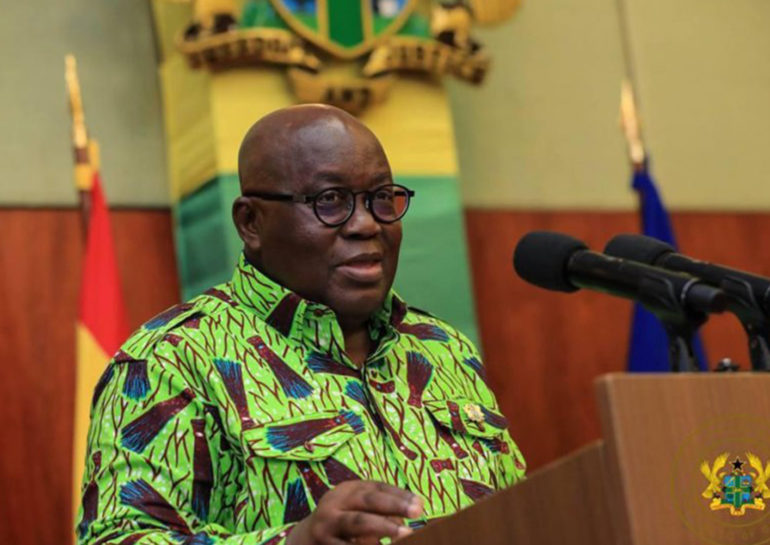Fast-track Household Registry To Aide Gov’t COVID-19 Interventions – CSOs To Gov’t

The Ghana Civil Society Organizations’ (CSOs) Platform on Sustainable Development Goals (SDGs) has called on government to, in the short-term, extend coverage of free water to the supply of water by the Private Water tankers in areas that are not under Ghana Water Company.
According to them, that would clear the notion being held by some people that in as much as all Ghanaians are benefiting from the electricity and water subsidy, it is a populist or ‘blanket’ intervention.
The CSOs Platform on SDGs made this recommendation when it released its Round 2 Policy Dialogue on citizen’s assessment of Ghana’s COVID-19 response via a virtual conference held on August 26, 2020 via zoom.
Making a presentation of its findings, Dr. Kwadwo Owusu indicated that, in the medium to long term, government should work assiduously on the social protection systems of the country, fast track to complete the household registry which will help to identify the poor for such interventions so that they can benefit the most.
He said: “The belief is that such reliefs should be extended to only the poor and vulnerable. With respect to the relief on water bills, while more urban dwellers are benefitting, others are not because they buy water from tankers and at exorbitant prices. This renders the relief unfair to such citizens, thus widening the inequity gap.”
Exploratory Research Approach was adopted to basically understand the impact of COVID-19 on the social and economic life of the Ghanaian citizens.
This, according to the Platform is to enable the research team to assess the impact of COVID-19 policy measures instituted by Government to alleviate the plight of Ghanaians.
“This approach enabled the team to understand the impact of the corona virus in the Ghanaian context. A survey was carried using an online questionnaire which was administered virtually to members of the society to provide primary data on the impact of COVID-19 on them and their families. Qualitative and Quantitative data were collected,” Dr. Kwadwo Owusu noted.
Speaking on the findings as regards government’s subsidy measures, Dr. Kwadwo Owusu revealed that 75 % of respondents have benefited from the Government of Ghana’s Subsidy Measure and the study shows that 65.2 percent of female headed households with majority, making 60 percent, in the south had benefitted from the subsidy.
“This implies that quiet a number (34.8 percent) of females headed households have also not benefitted from the subsidy. 62.6 % have benefited from the GoG’s policy, 52.1 % have not received a bill to make payment since April, 2020; 14.9 % since me for May, 2020 and 10.6 % since June 2020.”
On education, he indicated that 55.8 % respondents do not find the Government’s decision to have final year students’ return to school as laudable. 44.2 % however find it as laudable.
For E-Learning Platforms, the report noted that 38.3 % and 30.8 % respondents indicated using Home Tutoring and Private School Learning Platforms respectively for their children whilst 15.4 % of respondents find it effective, 47.3 % find it to be somehow effective.
Stimulus package
Many more businesses, the group noted, are yet to apply for support from the Coronavirus Alleviation Programme despite the fact that they have been affected by the pandemic, hence the Platform is recommending a collaboration between the NBSSI and Metropolitan, Municipal and District Assemblies to decentralize application processes to the zonal or area council levels so that more small-scale business owners who are not technologically inclined can apply and have access to the loan.
To promote transparency, the CSOs said the board should inform applicants of the range of funds they could apply for and give them reasons for unsuccessful applications.
“In as much as the support is financial, the NBSSI could also consider support in form of equipment/inputs and provide coaching to business on internet marketing,” Dr Owusu said adding that “91.89 % are aware of this measure put in place by Government. 62.16 % have not put in an application. On Transparency, 63.6 % agree that the process of application was transparent; 30.4 % of applicants had not received any allocation as a result of their application.”
The Platform also recommended that as many farmers that have their businesses affected in terms of sales, Government need to provide subsidies on farm inputs such as fertilizer and seeds for the farming season, revealing that access to transport services by farmers is difficult, prices of seeds, fertilizers and pesticides were reported to have increased and concurrently increasing in the prices of food crops and animal products have increased.
Dr. Kwadwo Owusu said the survey was to enable them inform government in securing support for communities, NGOs and other citizens’ groups to develop and implement initiatives at local and national levels for supporting vulnerable groups and the implementation of national and local response plans
He also said, CSOs Platform is also seeking an increased transparency, responsiveness and accountability of government and its relevant agencies to citizens around the development and implementation of Covid-19 response plans, including the utilization of resources.
By Prosper Agbenyega



